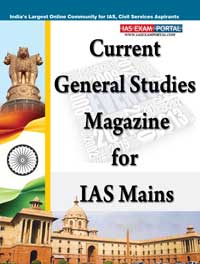(HOT) UPSC Current Affairs 2025 PDF
NEW! The Gist (NOV-2025) | E-BOOKS
Current General Studies Magazine: "An Autonomy Policy" October 2016

Current General Studies Magazine (October 2016)
General Studies - III "Economy Based Article" (An Autonomy Policy)
Over 60 days after the first announcement of withdrawal of high value notes, the major collateral damage, apart from the economic disruption it triggered, has been to the image of the Reserve Bank of India (RBI), which has been handling the currency swap arrangements. It is a view, which has now been amplified by Y. Venugopal Reddy, a former RBI governor, who said in an interview that he suspects the institutional identity of India’s central bank has been damaged over time.
It is worrying when a former RBI governor raises concerns relating to the credibility and reputation of the central bank. To quote Reddy, “If this is happening in the international opinion, I would say that it is a national problem now and not just a political issue.” These are strong words, reinforced by a report also in this newspaper on Tuesday that it was the government which “advised” the RBI to consider withdrawing currency notes of denominations of Rs 500 and Rs 1,000. Last month, former prime minister and a former RBI governor himself, Manmohan Singh, had said in Parliament that the constant modification of rules for withdrawal of money reflected poorly also on the RBI. Singh added that while he was sorry to see the central bank being exposed to criticism, he felt it was justified. The last time the RBI may have faced a similar risk to its reputation was during the securities scam in 1991-92. That, however, led to significant institutional changes and a progressive rise in the stature of the central bank. The professional leadership that helmed the RBI have also convinced successive governments to respect the bank’s autonomy: They have also been fiercely protective of the bank’s role as an independent regulator.
Given the enormity of the implications of demonetisation, the RBI leadership ought to have been more communicative to the public. The core issue is the credibility of the central bank and public trust. This is critical because at stake is the stability of the economy, which in turn, hinges on the credibility of the central bank — not just in the eyes of global investors and rating agencies, but also from the perspective of the entities the RBI regulates. The government too ought to be mindful of the potential risk if the perception gains that the moral and institutional authority of the RBI has been weakened. There is increasing recognition that the RBI cannot be viewed or treated merely as just another regulator or a macro prudential supervisor. For, that’s what it has sometimes appeared like during the demonetisation process. Its disquieting silence, muddled signals and its reluctance to ask questions have dented its authority. The challenge before the central bank is to assert itself, reclaim the space vital to the health of the institution.
(Source- The Indian Express)

